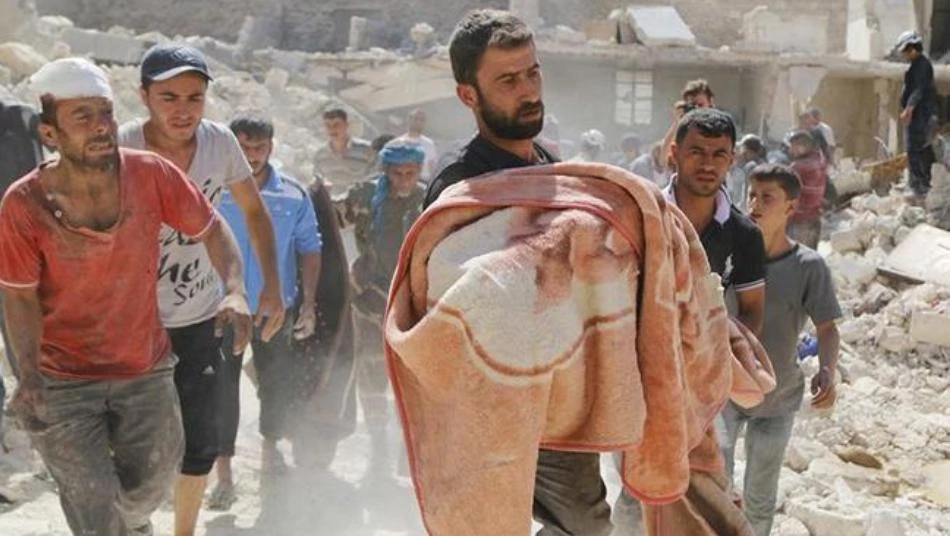In addition to the modest number of prosecutions in Europe, there have been a handful of other important developments in the pursuit of accountability for atrocities committed in Syria. In January, a court in Washington ordered a reward of $302.5 million to the relatives of Marie Colvin, the renowned journalist who was killed in an attack by the Assad Army in Homs in 2012. Following the European Union’s example, Congress also passed a bill that would place sanctions on firms and individuals who knowingly, directly or indirectly, provides significant construction or engineering services to the Assad regime.
Of course, expectations need to be managed. What has been achieved is important but is a drop in the ocean given the scale and nature of atrocities committed in Syria. It does not mean that Bashar Assad ‘is next’ or will inevitably be prosecuted. It is no secret that accountability for mass atrocities committed during the Syrian war has been lacking. Yet this absence of accountability has pushed proponents of global justice to design creative mechanisms when their conventional tools — international courts — are unavailable. What happens next will depend on whether states take advantage of outstanding opportunities to prosecute perpetrators of atrocities in Syria.
New international justice tools
From the earliest days of the Syrian war, international criminal justice has had little to offer victims and survivors. At first, even the Obama administration, for example, refused to entertain a UN Security Council referral of the situation in Syria to the International Criminal Court (ICC) lest it undermine the Syrian peace process. After talks aimed at ending the war failed, the United States threw its weight behind a referral to the ICC in 2014. But Russia, by this point a lifeline for Assad’s regime, balked. Along with China, Moscow vetoed the referral. Efforts to set up an ad hoc tribunal also went nowhere.
Against this backdrop, two important initiatives were launched. The first was the creation of the Commission for International Justice and Accountability (CIJA), which uses on-the-ground Syrian investigators to collect evidence of international crimes committed by the Assad regime as well as ISIS. CIJA’s model reverses the conventional wisdom regarding justice for mass atrocities. Rather than waiting for a tribunal to be set up before investigating atrocities, CIJA initiated investigations and offered any prospective court — domestic or international — the evidence that it gathered. The evidence collected by them and others such as the European Center for Constitutional and Human Rights (ECCHR), is reportedly better than what was available at the trials of senior Nazis at Nuremberg.
The second initiative established was the International Impartial and Independent Mechanism (IIIM) for Syria, which works to gather, collate, and preserve existing evidence of atrocities in Syria. The hope is that evidence will be eventually used in an appropriate court. The IIIM was created by the UN General Assembly, therefore bypassing the deadlock of the Security Council — and making it unique among accountability mechanisms.
Illustrative of the contribution that the situation in Syria has made to international criminal justice, the work of CIJA and the IIIM will be replicated as tools of global justice. There is now an IIIM for Myanmar, also known as Burma, for example. Meanwhile, evidence of atrocities committed in Syria and collected by CIJA and the ECCHR continues to be used in war crime trials in Europe.
Taking Responsibility
It is ironic that a Syrian perpetrator of war crimes traveling to Europe is more likely to be prosecuted than a Westerner who traveled to Syria to perpetrate atrocities returning home. No Western state is eager to prosecute their own nationals who went to fight for ISIS and committed crimes abroad. This is due to at least two reasons.
First, the political discourse in many of these countries reflects prevalent fears that returning ISIS militiamen, as well as refugees more generally, will undermine public safety. The potential return of fighters is not seen as an opportunity to achieve justice for atrocities committed by ISIS so much as a threat to national security and a burden on the state. As a result, governments often view the repatriation of these fighters as political kryptonite. Second, there are legal hurdles to prosecuting returning fighters who have committed atrocities abroad. These cases are difficult to investigate from London, Washington or Ottawa. In addition, evidence that has been gathered by states may be inadmissible in court or may consist of intelligence provided by partner states that these countries are not authorized to submit at trial. As a result, many of those who have returned are ‘monitored’ by law enforcement bodies rather than prosecuted, adding to the fear that the returning fighters pose a threat to their ‘home’ countries.
The fact that hundreds of former ISIS combatants are in custody in Kurdistan, Syria and elsewhere represents a rare opportunity: the chance for states to pool their resources, set up an internationalized or hybrid court, and hold perpetrators to account in a comprehensive manner. Perhaps this would require a prosecutorial strategy that focuses on using plea agreements to generate effective evidence and build stronger cases for the most senior perpetrators.
Setting up such a tribunal in the region would offer accountability close to where victims and survivors reside and where evidence still needs to be gathered. At the same time, investigators could work to gather and collate evidence of crimes by other actors in Syria and Iraq, including opposition and regime militias. Above all, a tribunal of this kind would signal the international community’s interest to finally work together to achieve justice where little has been achieved.
By Mark Kersten
Edited according to Orient Net. Link for the original source of the Washington Post.



التعليقات (0)